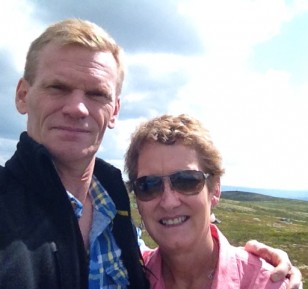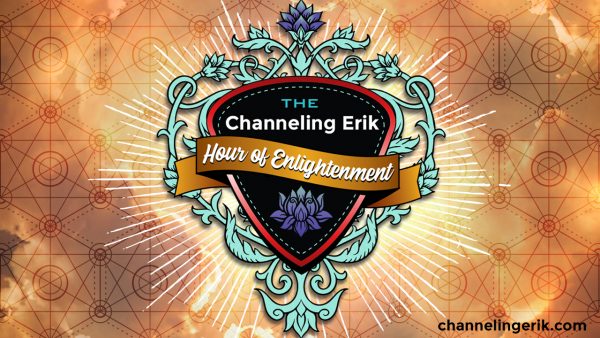I’m back from a restful time in Norway where life in the alpine tundra is surreally Zen. (At times, it was so peaceful that I couldn’t wait to return to the chaos which has become my life.) Other than the tranquil mornings and evenings on the front porch and the visits to relatives, I enjoyed my first badger sighting and an encounter (not too close a one, thank god) with moose poop in the road.
I could feel Erik’s presence often. He loved Norway. Sometimes, when I felt his energy, it would trigger tears, so, even though the vacation was a delight, this peppered it with occasions of grief. So many moments when the mind is quiet and busy work is nonexistent can uncover seething grief as well, but those incidences were seldom, short-lived and necessary.
Here’s a very short clip of the top of the tundra near our cabin. It was a beautiful 1 1/2 hour hike where the temperature and company was lovely.
I would like to extend my deepest gratitude to Mike Hulse for taking care of things while I was gone. I knew I was in good hands, which made it that much easier for me to relax and decompress.
Before you read on, I’d like to ask you for a big favor. Could you go to my Channeling Erik Facebook Page and “like” it? The publisher is going to make a final decision on whether to publish the next book, and they’re going to ask for social media stats. Here’s the link:
This post is about emotional resilience. The ability to adapt to adversity. I don’t know of one single person who has not experienced some sort of tragedy, hardship, disappointment or defeat. Most will tell you that rebounding from these isn’t always easy.
This is a topic that’s very close to my heart. Some of us can bounce back when we get beaten down while others of us can’t. When I was young, I wasn’t very resilient, but after suffering one setback after the next over the course of my life only to find out that, particularly with support, I could prevail, I learned to “roll with the punches.” However, after Erik’s death, I lost all emotional strength. Getting out of bed in the morning was a chore. Sometimes it was impossible. So focused on the darkness that engulfed me that I was blind to what I had overcome in the past. Eventually, that lack of resilience took its toll when I ended up trying to take my own life. Were it not for my youngest daughter’s efforts to save me, I wouldn’t be here writing this book today. Since then, it’s taken a great deal of strength and effort to rediscover that emotional resilience that before had defined me as survivor rather than victim, but, with Erik’s help, I’m slowly progressing to where I once was.
Me: Some people can bounce back from a painful experience to varying degrees and over different periods of time while some people can’t at all. What’s behind that? For example, someone was in a toxic relationship which ended abruptly, but they can’t seem to get back on their feet again.
Erik: It’s the vicious cycle and the “haunt.” (In an eerie voice) Ghost energy!
Me: Oo!
Erik: Not ghost people. I’m just talking about an energy I call “the haunt energy.”
Me: Oh, okay.
Erik: You know how each seven years every cell in your body has changed?
Me: I think I’ve heard that. Still, I question your theory based on the way my body looks now!
Erik chuckles.
Erik: So, physically, we can create new selves. Redone, renovated.
I’m going to have to have a serious talk with my general contractor.
Erik: But energetically, we’re not trained to do that. So our memories and our old emotions keep coming back. Even if we learned from the situation and we know we’ve done the “right” thing, it keeps coming back and haunting us.
Me: I can see how that might make it hard to peel yourself up off the floor. Whatever haunts you keeps you pinned down.
Erik: Yeah, and those who have trouble bouncing back don’t know how to accept what they’ve been through and let it run through them. They don’t know how to let all the negativity move through them in a way that they get the experience without it altering them. You need to be a net in the river. The net experiences all of the motion, the energy and the life force, but its structure never changes. The net stays intact. What some people do in a “negative” situation is nothing. They just stay in place. They sit there like a rock, and that sitting comes from an emotional place. They don’t trust whether they’ll be able to handle the situation emotionally, so they stay in their pain, their grief, whatever they need to bounce back from, and they don’t trust that if they do bump into something, it’s not going to be the end of the world. They need to know that they’ve bumped into things in the past, and they’ve figured out a way around it, so they’ll figure out a way around this one, too.
Me: Are you saying –
Erik (Sensing my confusion): Here’s another way to look at it. You have a brick wall, and you have a screen wall. A rush of air can’t go through the brick wall. It has to go up and over it. That creates a force, a braking force.
Me: Mm hmm.
Erik: Air can get through the screen wall, and at least you still have some kind of barrier. That barrier is you. You can’t say, (shouting in a whiny voice) “I can no longer have a barrier here!” That’s like saying, “I can no longer be myself.” That’s bullshit. You definitely want to be you. You don’t want to give up you, and you can have “you” remain in place without being the brick wall. What you want to be is the screen. In terms of emotional resilience, being the screen allows your haunting moments to move through you. People who aren’t emotionally resilient are either lowering their head and trying to push their way through the brick wall, or they’re crouching behind the wall stuck in place and whimpering. I guess what I’m trying to get across is that emotional resilience is about letting things pass through you while acknowledging that you’re having the moment that’s been haunting you like a fucking ghost.
Me: What might be an example of haunting moment?
Erik: Let’s say you wanted to say something to a dying person, but they died, and you’ll never get your chance.
Me: Oh yeah. Mm hmm.
Erik: If you aren’t emotionally resilient, you’ll let that haunting moment of not saying those final words bash into the brick wall over and over. When you do that shit, you feel pain with every blow. If you’re emotionally resilient, you’ll let that haunting moment pass through the screen, and you’ll sift out anything that’s valuable in the experience.
Me: What might be valuable in this example?
Erik: Well, you might realize that you’ve already said enough. You might realize that saying those words can’t change the past or the future. There are all sorts of possibilities, and whatever you sift out is part of your authentic self.
Me: So how do we choose to let our haunting moments move through the screen instead of crashing into the brick wall?
Erik: It takes building trust with yourself that whoever was behaving in that certain way in any given moment was the true, authentic “you.” That’s what creates resiliency. That’s what allows you to let that haunting emotion or thought move through you. You don’t hold onto it and let it destroy the energy that you currently have. You don’t let it manipulate you.
Me: Where does the uncertainty fit in?
Erik: When you don’t have emotional resiliency, you don’t have faith that you can “get through this.” Uncertainty is ultimately about not be able to see far enough ahead. You’re walking around in the dark, and because you don’t know what the room was like when it was lit, you have no fucking idea what direction to go in. So you take these tiny little steps and cringe and go, (in a scared little voice) “Oh, am I going to run into something?” A lack of emotional resilience is not being able to see that everything is a process to help us evolve so that, from a logical perspective, we can figure out how to solve the problems and, from an emotional perspective, we can become aware of how we’re feeling and how we’re working through those problems on an emotional level. You can handle anything. The only reason people end up breaking down is because they never give themselves a chance to see that.
Me: How can they allow themselves to see that?
Erik: It’s different for everyone.
He shows an image of a person getting covered by one blanket, then another, then another.
Erik: These blankets represent different experiences, emotional or otherwise. You have to learn how to take off these blankets one at a time. This is a metaphor for letting go of those experiences. You do that by taking small steps. Let’s say you’re afraid to leave your house. You’re trapped there because you have agoraphobia. Start with opening a window. Look outside, and see everybody walking up and down the street. Then, walk out on your front porch and stand there for a few minutes. Whenever you start to feel overwhelmed, go back in the house. Don’t let it get to the point of just piling more blankets on. Then, you go out and try to stay outside longer and longer. When you don’t rush things, you don’t pile another blanket on and you learn to bounce back from pain.
Me: What about in my case?
Erik: Mom, you’re life has been about piling on one blanket after another starting with your childhood abuse to my death. Let’s talk about why you wanted a family.
Me: Okay.
Erik: Your pattern is to work from the outside hoping that it will work its way back to the inside. You try to heal external things hoping that it will come back and heal you.
Me: So true.
Erik: That’s one of the reasons you wanted a family. You wanted to give your kids the fairytale childhood that you never had.
Me: Yes. I thought that would heal me.
Erik: Exactly, but it doesn’t really work that way.
Me: Tell me about it! It might put a little Band-Aid on it, but…
Erik: It might not heal you, but it’ll give you that awareness that it won’t.
Me: Actually, my expectations set me up for a lot of pain because when it doesn’t work, like when one of my children struggled with various things—
Erik: You look at it as your failure. So once you realize it won’t heal you internally, you become aware of what will. A lot of people go through this. They look for something external to themselves to heal them. It never fucking works.
Me: Yeah. You never learn to bounce back, to have that emotional resilience.
I’ll post Part Two tomorrow rather than posting the usual “Best of Erik’s” as I’ve done tuesdays and thursdays.





